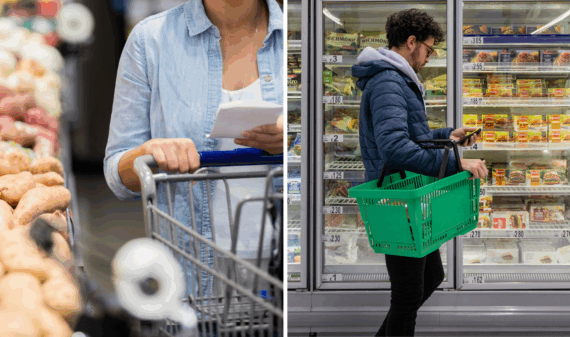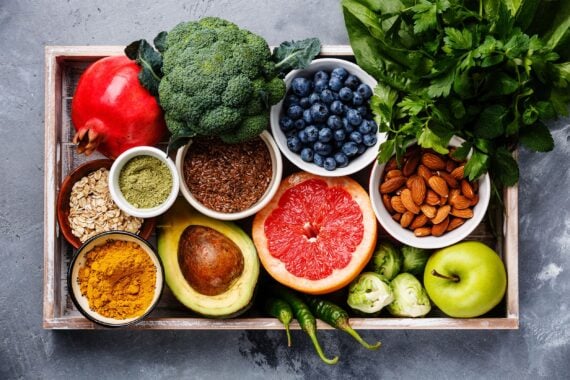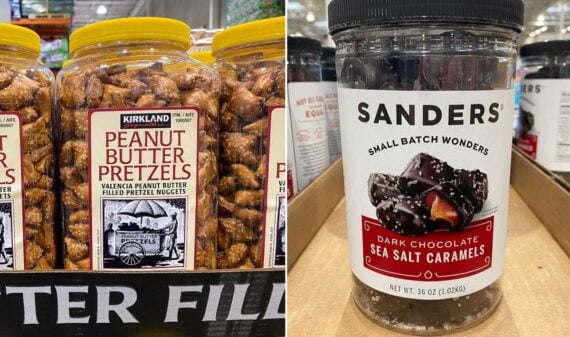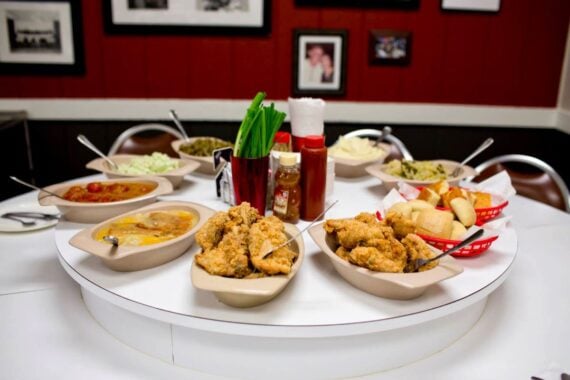It’s no secret that grocery stores want you to spend as much money as possible. But do you know all the sneaky ways they go about getting you to buy beyond what you need? These are some of the most common ways stores try to sway you, plus secrets to save you more money next time you shop.
Choose the Best Days To Shop

Be strategic about when you go to the grocery store. Some stores have days when products are more likely to go on sale. For example, Wednesday is the best day to hit Aldi. They often release new products on these days. Plus, produce often goes on sale at Aldi on Wednesdays. At Target, Tuesdays are the best day for food deals.
You Can Try Before You Buy
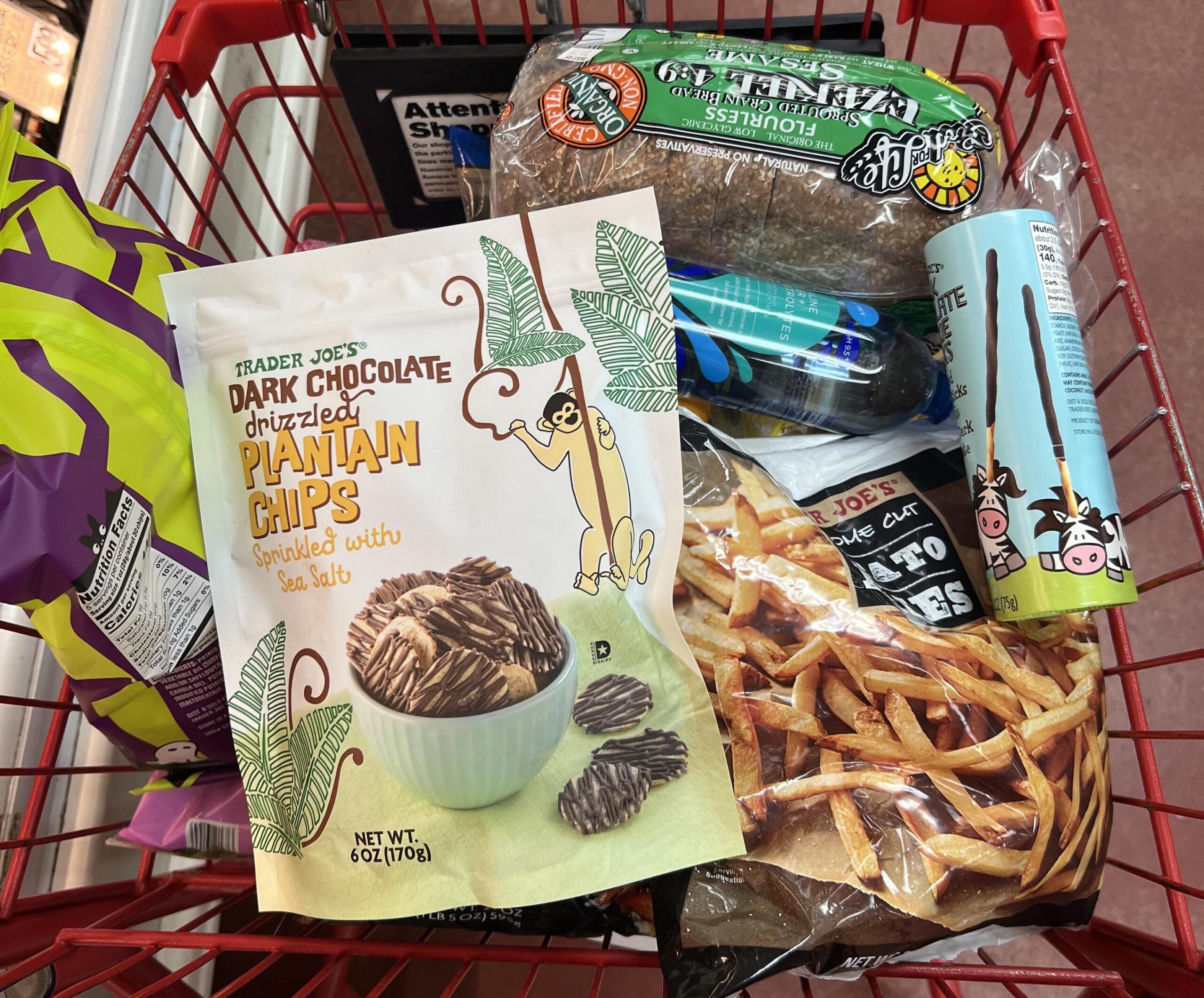
We’ve all been there — you buy something at the store that looks delicious, but when you get it home and open it, it’s decidedly meh. You kick yourself for wasting money by being taken in by the marketing. It’s a hidden secret that Trader Joe’s has a “try before you buy” policy. This of course won’t work with all food items, such as frozen foods, but it’s worth a shot asking at your local TJ’s. Also worth noting is that Trader Joe’s allows customers to return most items, even if opened, if you have a legitimate reason.
The Store Brand May Be Exactly Like the Name Brand
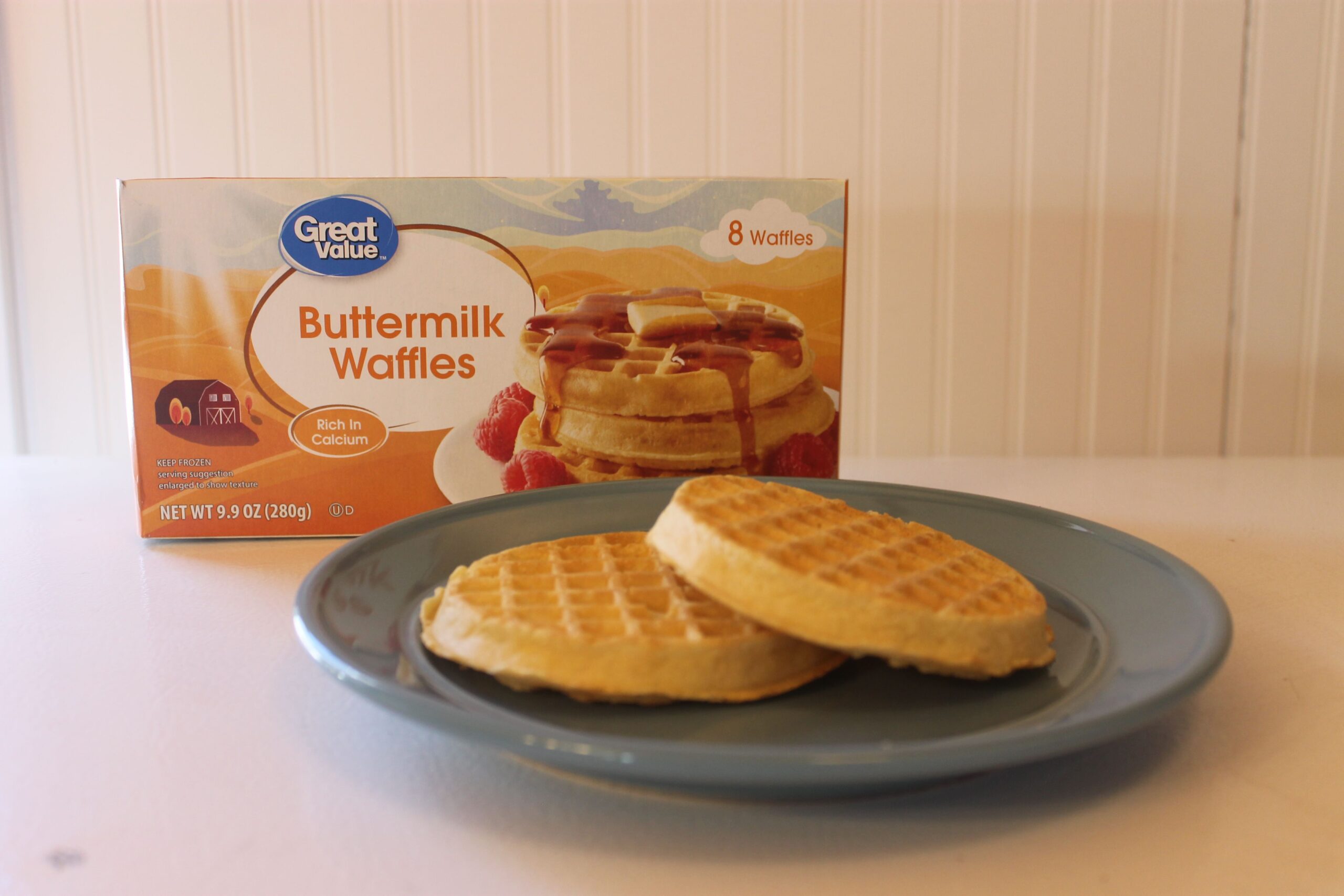
Buying a generic version of a name brand will almost always save you money, and usually tastes similar. In fact, some generic brands are even made by the same name brands, but are cheaper due to less money spent on marketing.
BOGO Specials May Save You
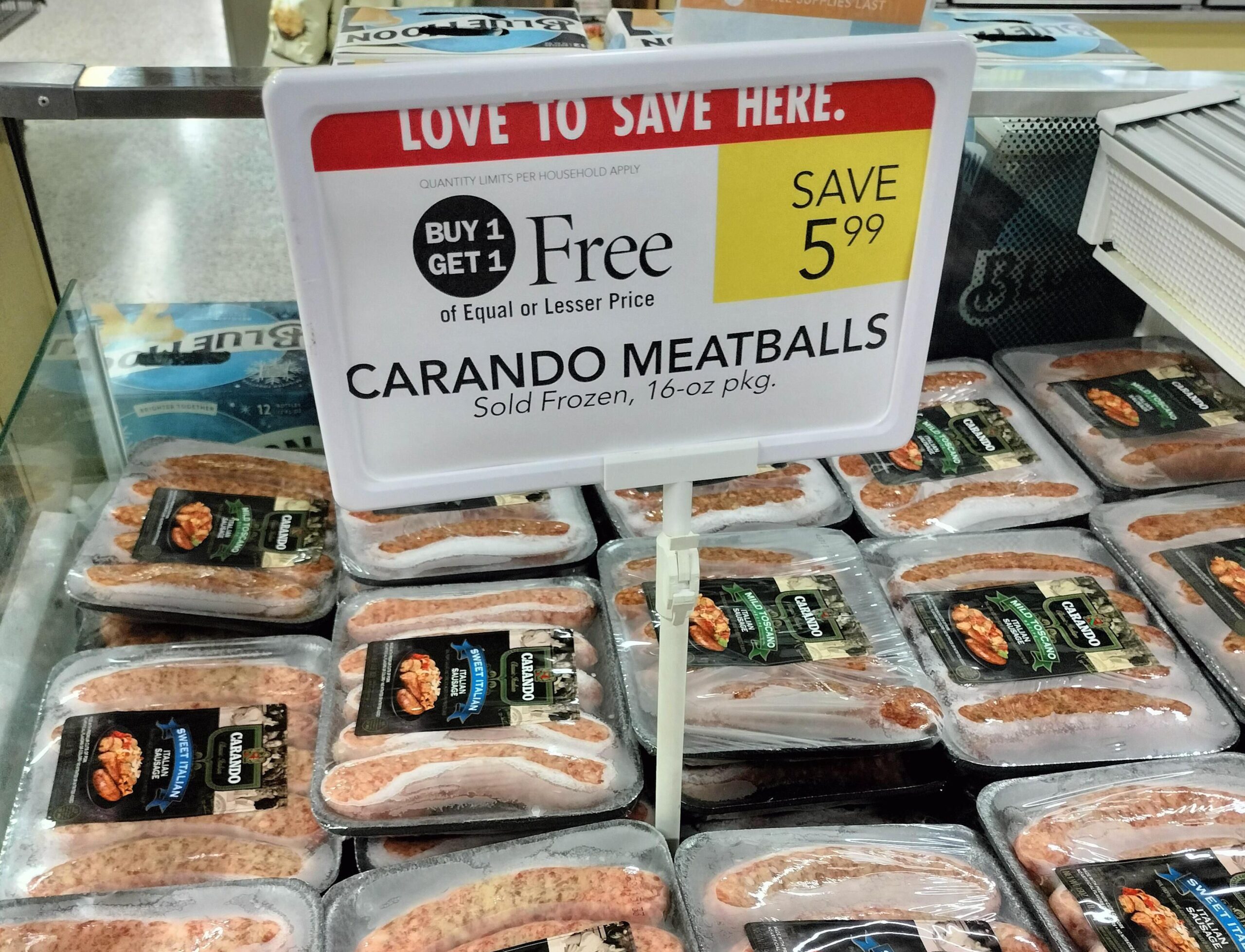
Publix is just one market known for their buy-one-get-one specials. It’s worth keeping an eye on their flyers to see what deals may be coming up. However, steer clear of BOGO if you don’t actually use the product, just because you’re hoping to get something free. It can be too easy to get sucked in.
Store Emails Aren’t Just Spam

Some stores may list most of their sales on their website or via their app. If you shop at certain stores regularly, downloading the app and getting on the mailing list may be well worth it. For example, Kroger shares a digital coupon for a free item every Friday.
Trending on Cheapism
Aldi Has Discounted Name Brands
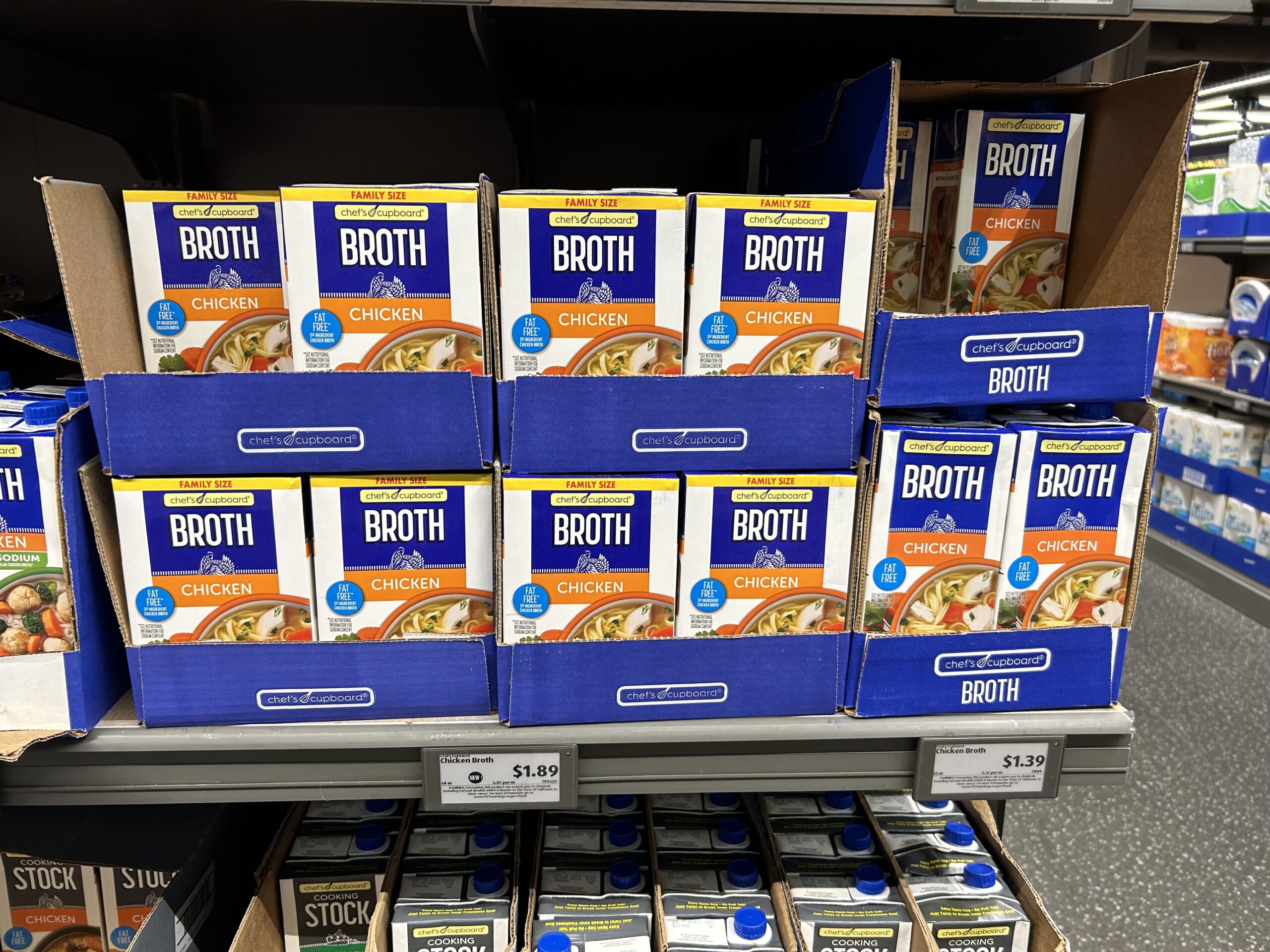
You may have wondered just how Aldi can offer name brands for less? It comes down to stocking either discontinued or overstock items that the store buys for less. If you’re committed to brand name shopping but love a discount, keep an eye out to see what Aldi stocks.
Grocery Stores May Offer Better Prices Than Drugstores

Consider moving your prescriptions to the grocery store. For example, Walmart has a low cost prescription program that offers $4 prescriptions. Compare what’s offered at your local pharmacy, and see which comes out better.
Look Anywhere But Eye Level
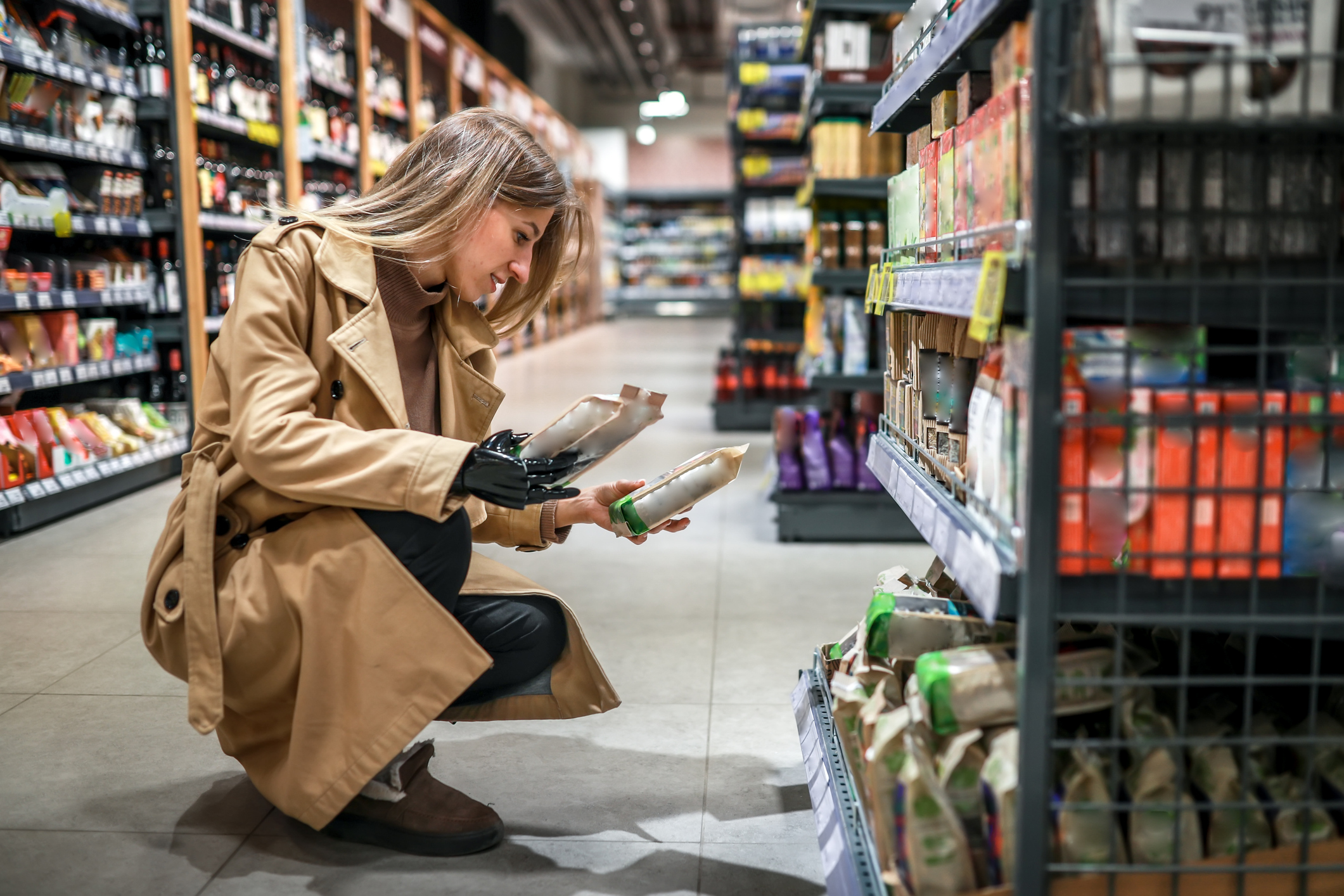
Retailers assume that you’ll look eye level while shopping, so they typically place the pricier items at that level — a universal grocery store trick. Look up and look down to find better deals on the shelves.
Sign up for our newsletter
Those Sprayed Fruits and Veggies May Not Be So Fresh
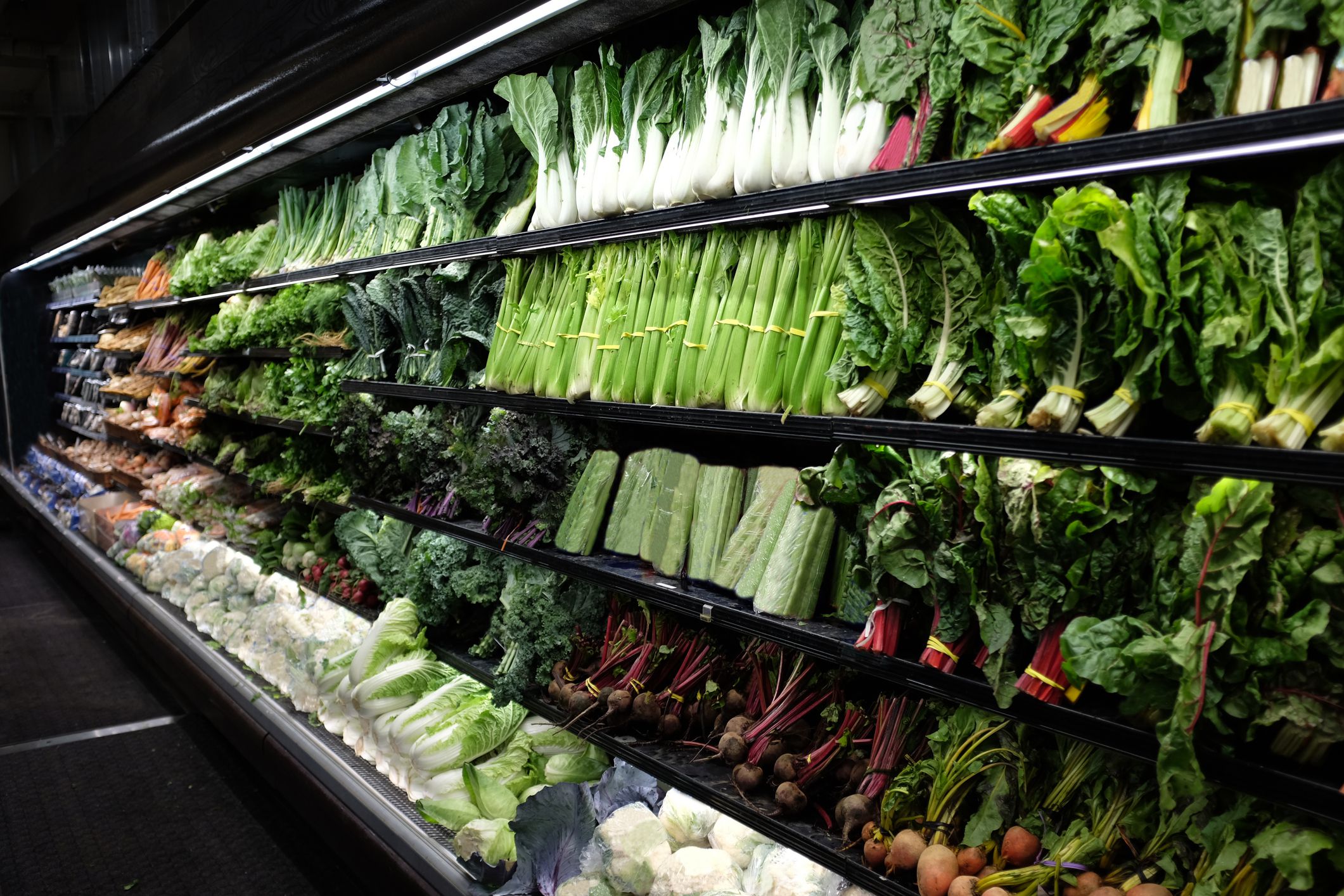
It’s a somewhat known secret that spraying the fruits and veggies at the market plumps them up to make them look more fresh than they may actually be. Inspect sprayed produce carefully when buying to avoid the trap of produce that you’ll have to toss faster.
Head Straight to the Back for Essentials
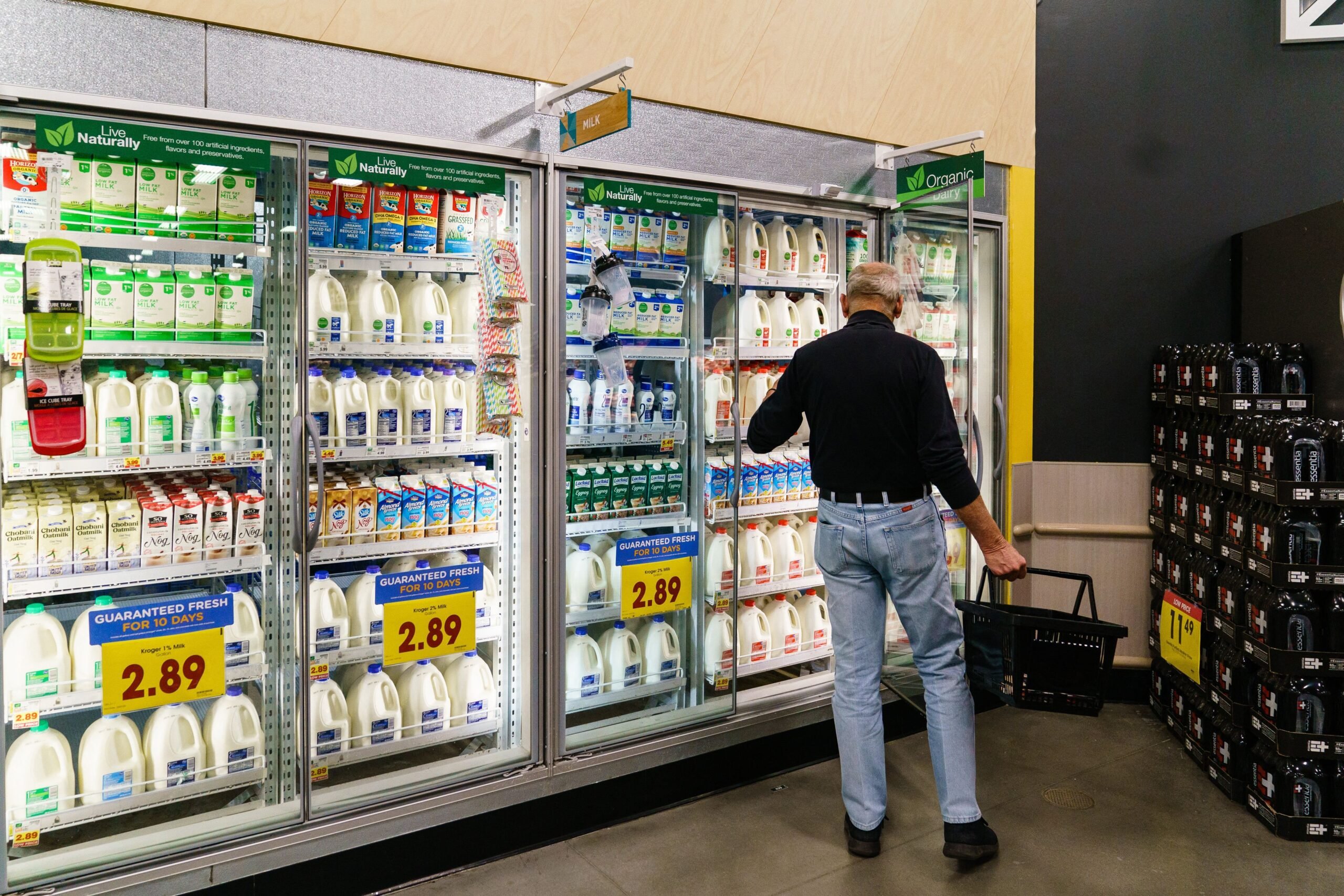
Groceries set up the aisles to put the basics like milk and eggs in the back so that you have to walk through the prepackaged, high-priced items and seasonal products first. You’ll probably save money if you can manage to make a beeline for the back.
Sale Signs Are Money Traps
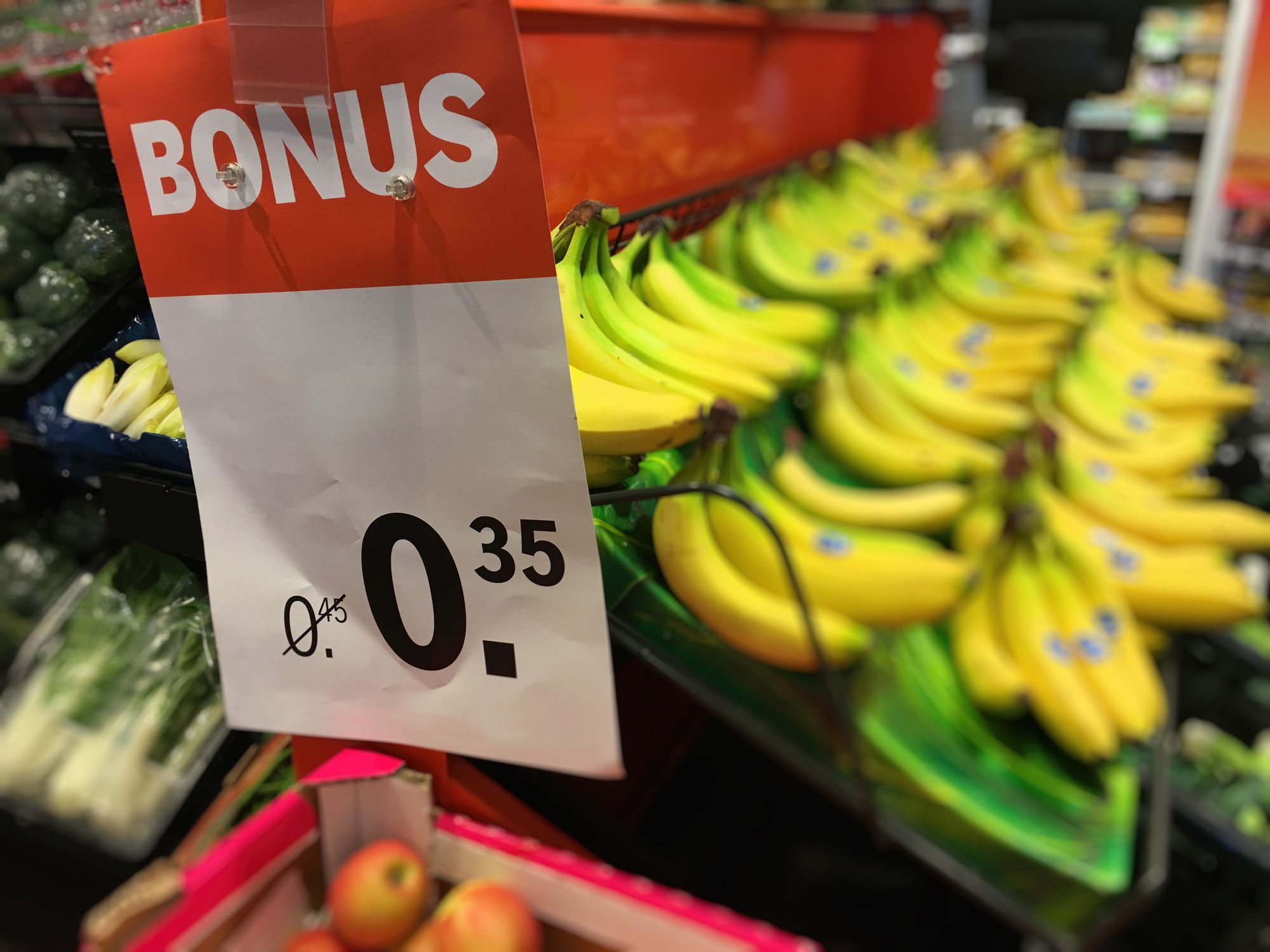
Sale signs are meant to grab your attention, and even pull your eyes away from similar items that may cost less. Don’t get distracted by what the store claims is a sale, because more often than not, you’ll find something cheaper.
Scent Marketing Is a Real Thing
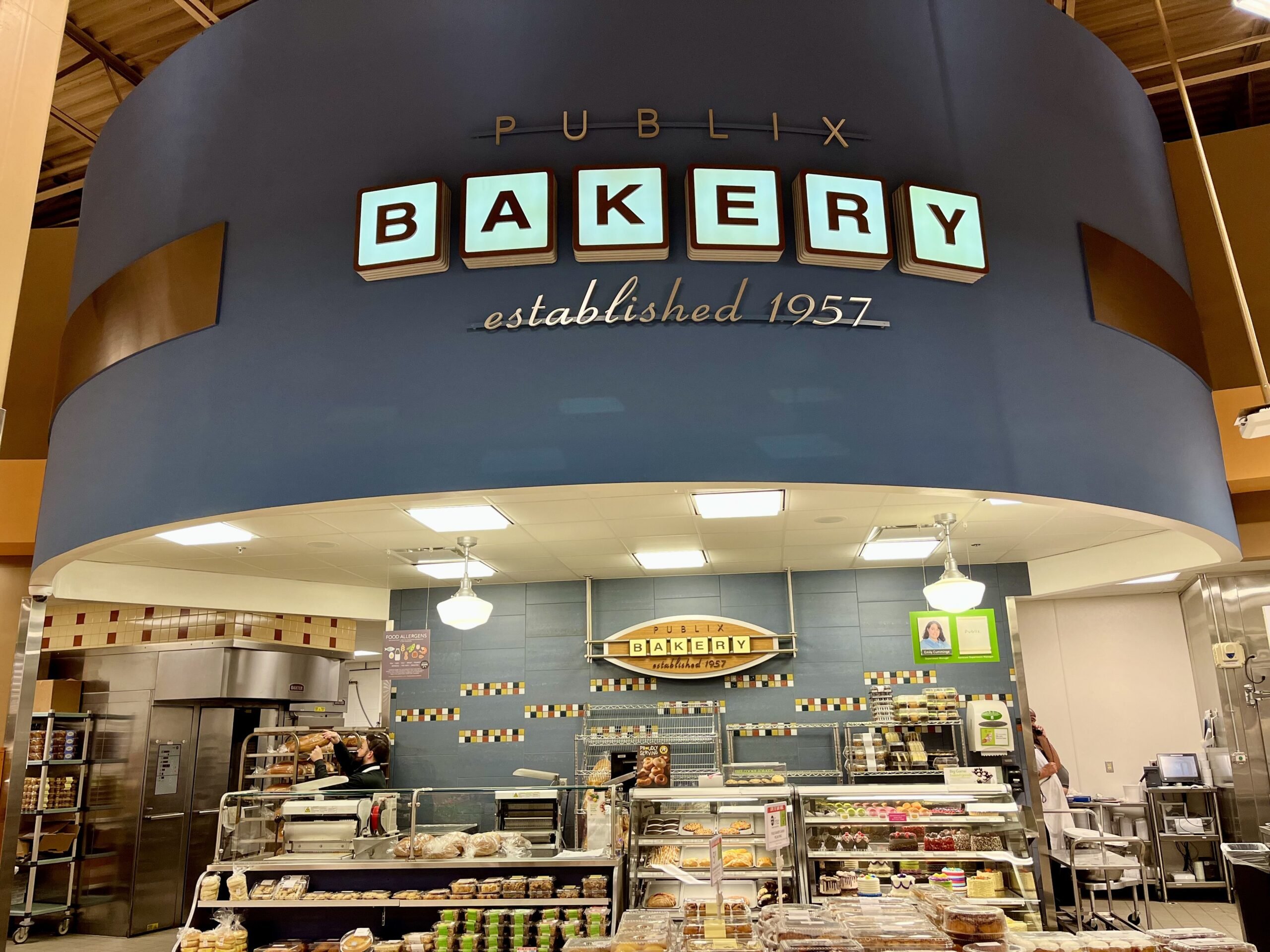
Smells of freshly baked goodies in the grocery store are a well-known ploy. The scents make you hungry and encourage you to buy items you don’t need. Never, ever go to the grocery store when you’re hungry.
Paired Displays Encourage You To Buy Things You Don’t Need
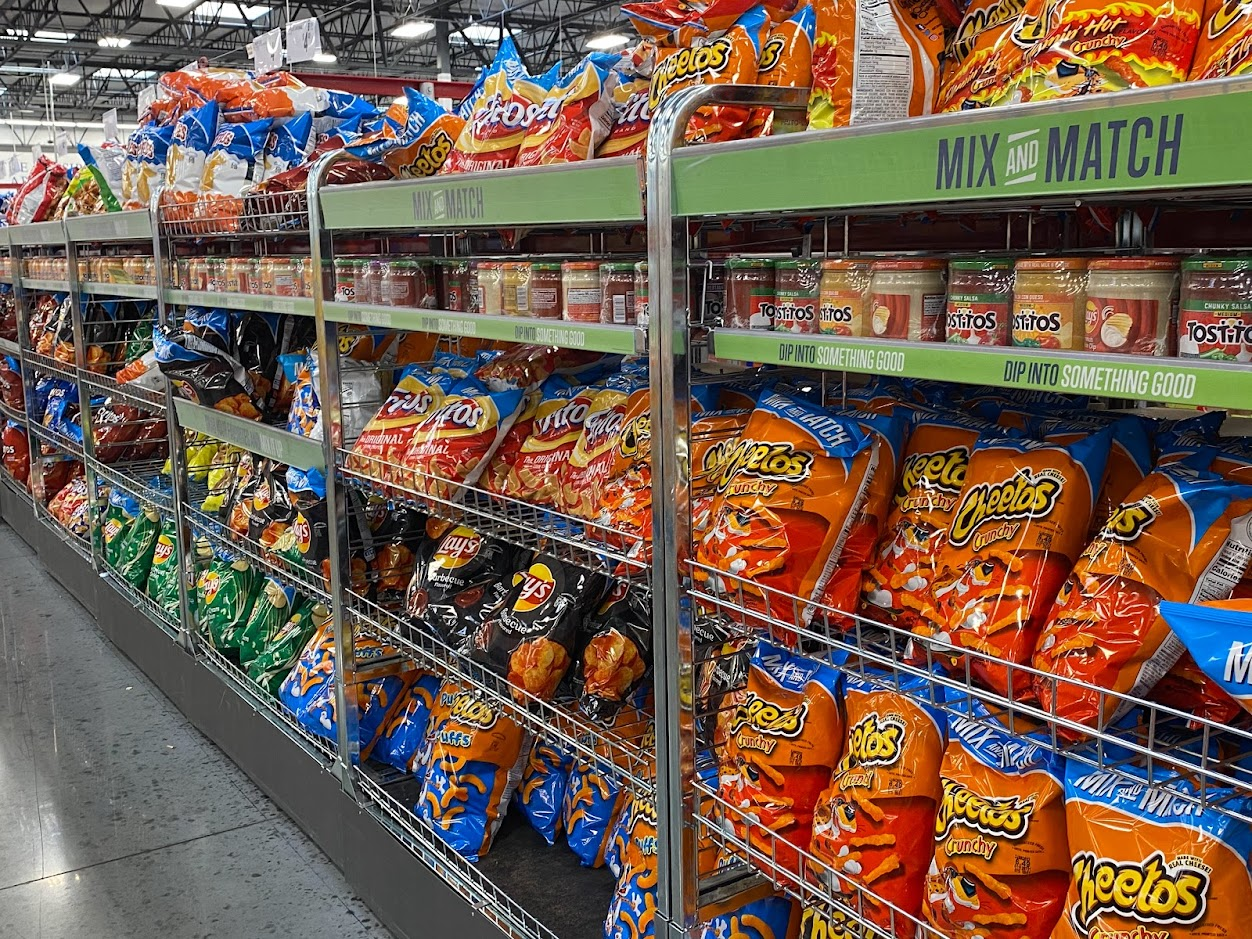
What a great idea you may think, when you see that display of chips and soda, bread and spreads, or soup and crackers. But all these pairings do is encourage you to buy things you don’t really need. Besides, you may be able to put together cheaper pairings on your own.
End Cap Displays Are Also Out To Get You
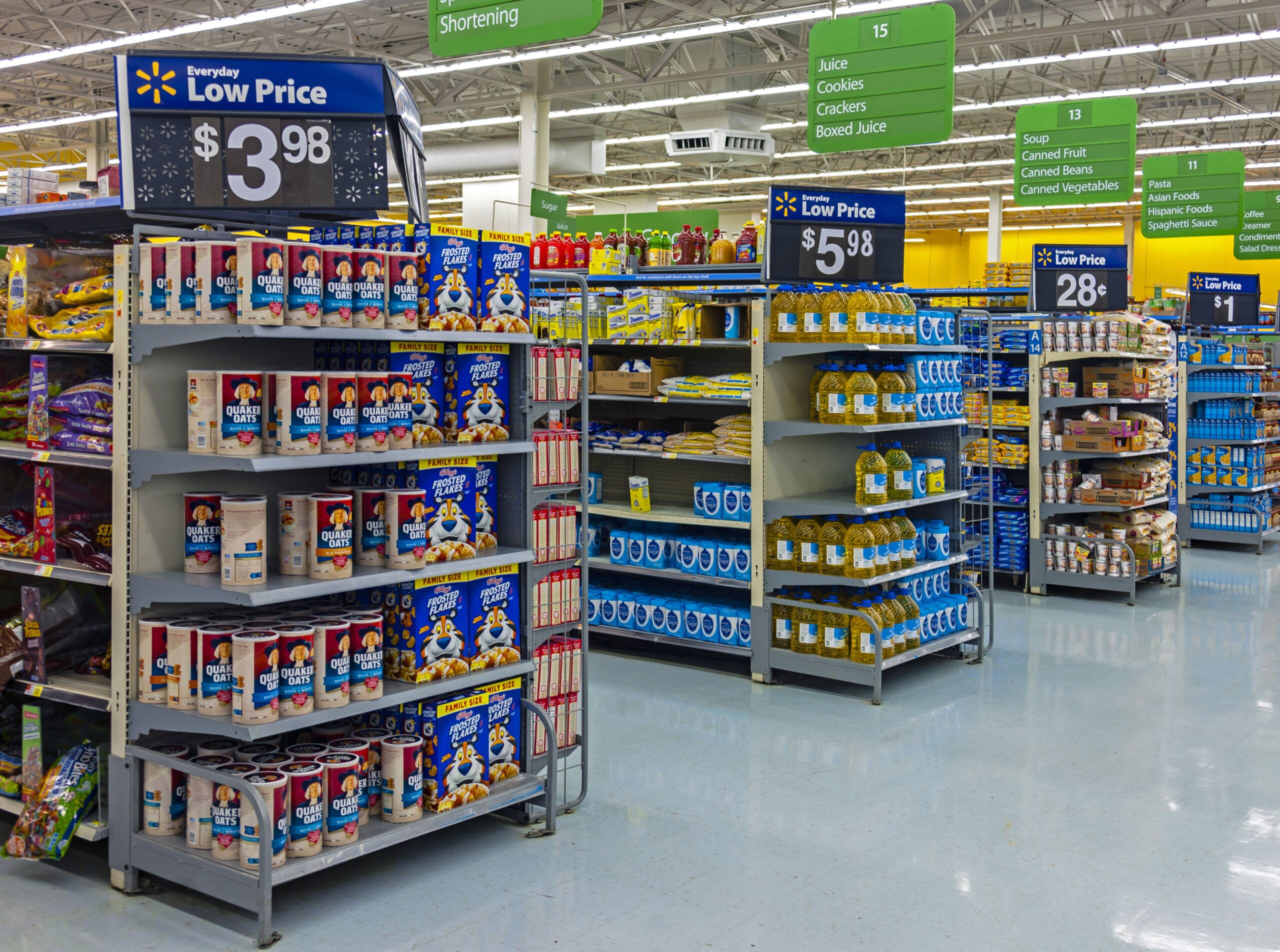
An end cap display, where products are put in the spotlight to garner interest, usually isn’t’ highlighting good deals. In fact, they’re often just a display of regular-priced items. Don’t be taken in.
The Music Might Make You Spend Money
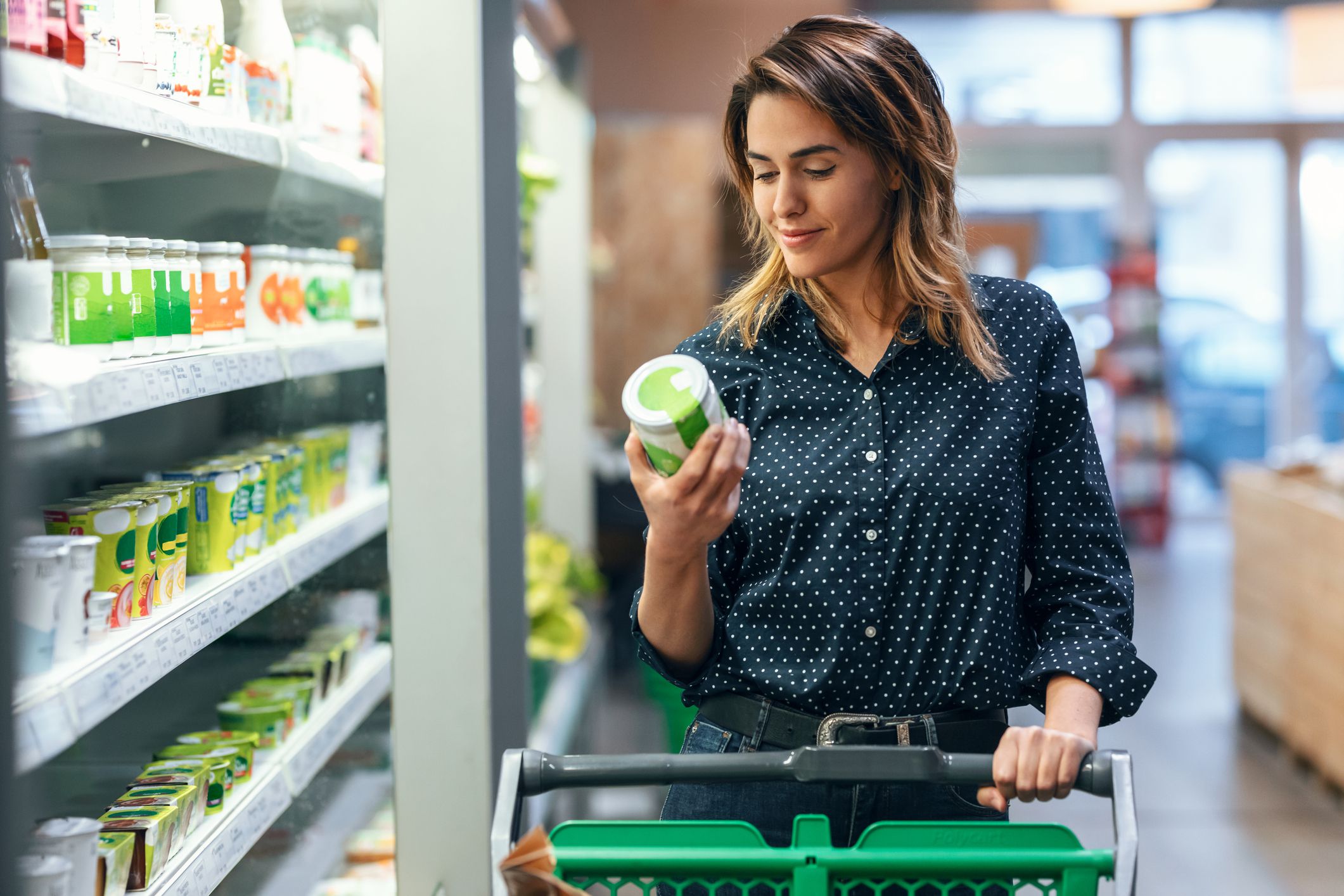
Grocery stores have a master plan for their music selections. Loud thumping music is associated with driving impulse purchases, while slower music encourages shoppers to move more leisurely, thus staying in the store longer and buying things they may not need.
For more clever money-saving hacks, sign up for our free newsletters.
